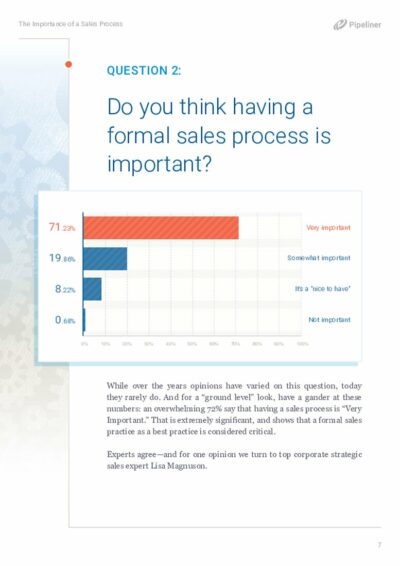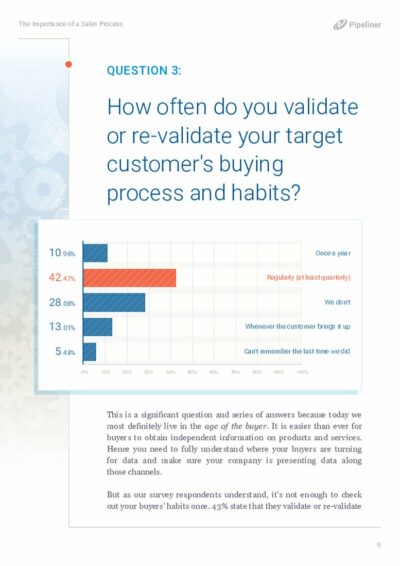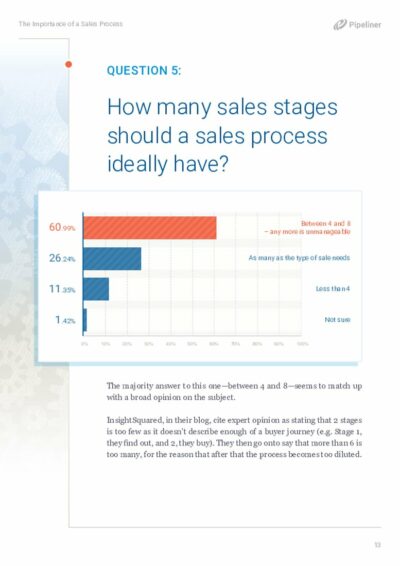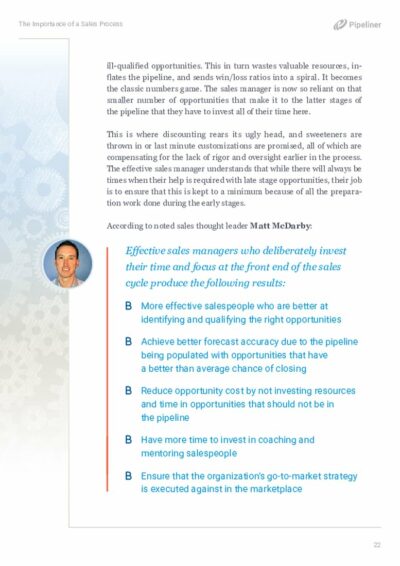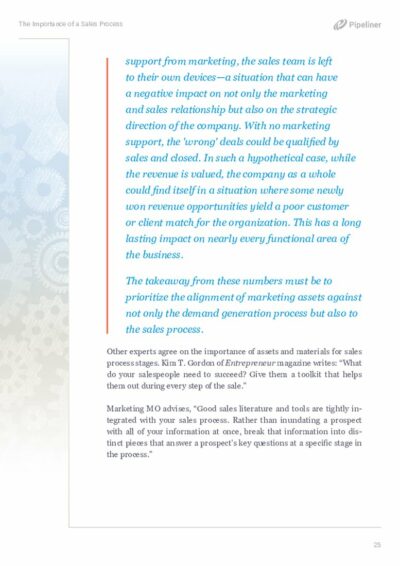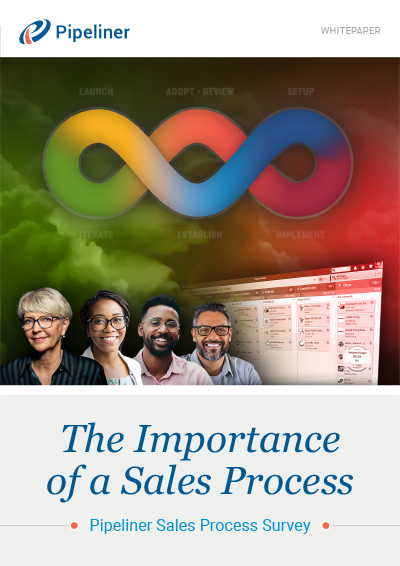
The Importance of a Sales ProcessSales Process Sales Process is a series of strategic steps or a set of activities aimed at driving sales growth through the alignment of personnel, market insight, methodologies, relevant business units, and technology.
Over the last 10 years or so, the sales process has become a subject of major focus in sales. There are several sound reasons for this:
✓ The velocity at which business is conducted increases constantly.
✓ Marketplaces have become crowded with competitors.
✓ Sales automationSales Automation Sales Automation is the act, practice or technique of using software to simplify, speed up or streamline the entire sales process or specific component activities such as customer tracking, forecasting, and inventory monitoring. is a must for today’s sales organizations.
For sales to keep up with today’s lightning-fast pace of commerce, and moreover to compete, they must have an accurate and effective process through which they can proceed to wins. And for sales automation to be effective, it must be based on a proven sales process.
QUESTION 1: Does your company have a formal sales process?
According to many authorities, having and using a formal sales process is mandatory in today’s lightning-fast, incredibly competitive business environment. A mapped-out process, consisting of sales best practices for a company, assures a higher degree of sales success with every opportunity.
QUESTION 2: Do you think having a formal sales process is important?
While over the years opinions have varied on this question, today they rarely do. And for a “ground level” look, have a gander at these numbers: an overwhelming 72% say that having a sales process is “Very Important.” That is extremely significant and shows that a formal sales practice as a best practice is considered critical.
QUESTION 3: How often do you validate or re-validate your target customerCustomer Customer is an individual or an organization that purchases a product or signs up for a service offered by a business.’s buying process and habits?
This is a significant question and series of answers because today we most definitely live in the age of the buyerBuyer A buyer is an individual or organizational entity that purchases a product or subscribes to a service.. It is easier than ever for buyers to obtain independent information on products and services. Hence you need to fully understand where your buyers are turning for dataData Data is a set of quantitative and qualitative facts that can be used as reference or inputs for computations, analyses, descriptions, predictions, reasoning and planning. and make sure your company is presenting data along those channels.
QUESTION 4: Should a sales process be mandatory and every salesperson have to follow it?
The numbers surely speak for themselves here: An overwhelming 68% of respondents maintain that a sales process should definitely be mandatory, and salespeople should have to follow it
QUESTION 5: How many sales stages should a sales process ideally have?
The majority answer to this one—between 4 and 8—seems to match up with a broad opinion on the subject.
QUESTION 6: Should each sales stage have defined tasks and activities that need to be completed before moving onto the next sales stage?
The top answer to this one was interesting: 58% of respondents answered, “Yes, but only the most important should be mandatory.” That shows that there should be defined tasks and activities that need to be completed before the opportunity is moved along the pipelinePipeline Sales pipelineis a visual representation of the stage prospects are in the sales process..
QUESTION 7: Who created your sales process?
No one tracks and knows sales best practices like sales management. It, therefore, comes as no surprise that 44% of our respondents state that sales management are the ones that created their company’s sales process.
QUESTION 8: Who should be responsible for creating your sales process?
In the last couple of years, there has been considerable discussion about sales and marketingMarketing Marketing is the field, set of actions, or practice of making a product or service desirable to a target consumer segment, with the ultimate aim of effecting a purchase. alignment. Interestingly, this very point shows up right here in our survey results—as 45% believe that a sales process should be created by sales and marketing together.
QUESTION 9: Where do most sales managers spend the majority of their time?
The top answers to this question show that a majority of sales managers are a bit “all over the map” in terms of where they spend their time. 37% spend their time in a mixture of early and late sales process stages, while another 26% in whichever stages they are needed.
QUESTION 10: Do you have documents, marketing assets or other materials specifically allocated to individual stages of your sales process?
The majority of respondents obviously do understand the importance of collateral materials as part of individual sales process stages. 47% have specific materials aimed at some (28%) or all (19%) of the sales process stages
Learn More About Pipeliner CRM
Take a no-obligation 14 day trial of Pipeliner CRM.
No credit card info required – just experience for yourself how it could impact your sales.
Additional Resources
This ebook is on the subject of “Win Together.” It falls under the same context as“win-to-win” described in my book Network Selling: Guarantee Success for the Digital Age. Today, this aspect of sales is more important than ever, and must also be part and parcel of CRM solutions.
“For some years I’ve been saying that, as a society, we’re in the midst of a transformation. Given what’s happened in the last couple of years, there’s no one left who is disagreeing with me! It’s become very obvious.”
 Nikolaus Kimla, CEO at Pipelinersales, Inc.
Nikolaus Kimla, CEO at Pipelinersales, Inc.A common term in sales today is EQ, which stands for “emotional I.Q.” It means the skill a salesperson has in reading emotions and utilizing them in sales. It means empathy and a number of other abilities. The short version is, it’s an I.Q. when it comes to emotions. But just as with our Network Selling model, E.Q. isn’t just for sales, either. It’s actually the missing factor in human interactions, for confrontation—a common “tool” in human interactions—doesn’t actually handle anything.
“You can have everything in life you want if you will just help enough other people get what they want.”
 Zig Ziglar
Zig Ziglar
